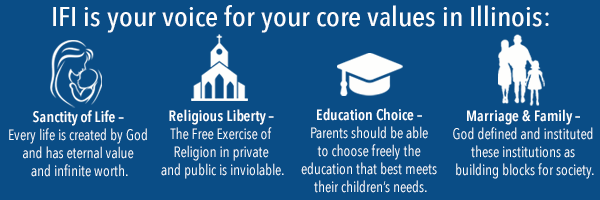Automatic Annual Gas Tax Increases in Illinois
Right on schedule, the new year will bring (yet another) onerous increase in gas taxes for Illinoisans: the gas tax is set to be increased to 42.5 cents per gallon, effective January 1, 2023. The state gas tax was 19 cents per gallon before J.B. Pritzker took office—meaning the gas tax has more than doubled in the last four years.
Elections have consequences and people’s memories are very short. Not only did Pritzker immediately raise the gas tax upon his installment as governor in 2019, he made yearly tax hikes automatic to account for inflation. But out of caution for Election 2022, he delayed the regularly scheduled tax hike until after the election. Instead, Pritzker required gas station owners to put stickers on their pumps that said:
“As of July 1, 2022, the State of Illinois has suspended the inflation adjustment to the motor fuel tax through December 31, 2022. The price on this pump should reflect the suspension of the tax increase.”
The Illinois Fuel and Retail Association fought the overtly political and partisan law in court, but the case was thrown out. Yes, this is Illinois. Since they were still required to post Pritzker’s propaganda (or pay a $500 fine), IFRA member gas stations also planned to post signs pointing the finger at the governor for the gas tax hikes as well as a QR code that would direct customers to an online gas tax calculator.
Unfortunately, such efforts to inform the public of Pritzker’s antics were not enough. Now one piece of legislation is attempting to postpone the increase for a few months. HB 5829, if passed, would delay the tax hike until July, 2023. The bill, however, does not touch the annual automatic increases.
So what’s an Illinois citizen to do? HB 5829 does too little and is too late. It simply kicks the can down the road a short distance. Pritzker won. He has no incentive to delay the hike. Illinois gas taxes are among the highest in the nation—second only to California’s ghastly 54 cents per gallon—but Governor Pritzker appears to have his eyes set on first place. As of December 2nd, the average gas price in Illinois was $3.70 per gallon, compared with the national average of $3.38 per gallon—a 32¢ difference!
Take ACTION: Click HERE to send a message to your state lawmakers to ask them to rescind the automatic tax increases on gasoline in Illinois. Remind them that working families are getting squeezed with inflated costs for groceries, electricity and heating. There is no good reason to automatically increase taxes on gasoline every year. Illinoisans want relief at the pump.
Lawmakers need to stop toying around with trifling measures like the proposed gas tax hike delay. Measures such as HB 5829 kick the problem a couple months down the road and give citizens the illusion of stability, but in reality, it just delays the inevitable. As long as J.B. Pritzker’s unjust automatic annual tax hike remains on the books, Illinois’s citizens are going to face greater and greater financial burdens at the gas pump. Serious action needs to be taken to protect Illinois citizens from the financial overreach of their government.
Please contact your lawmakers—something needs to change.

